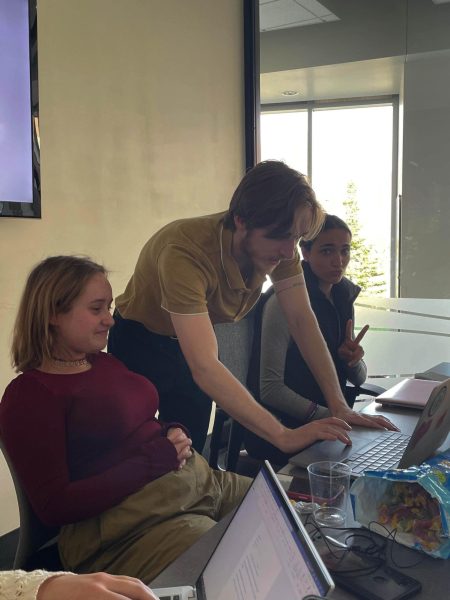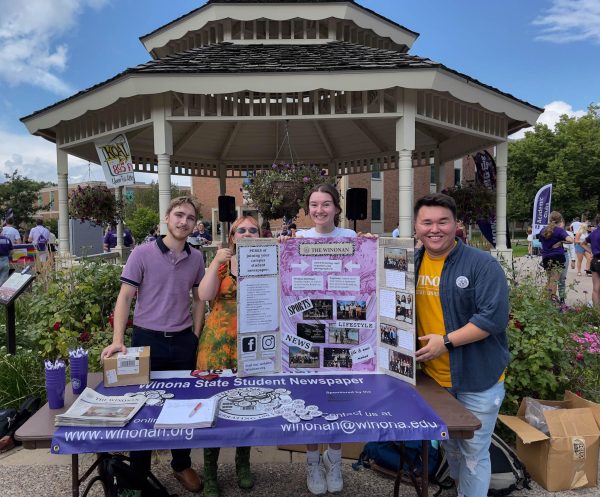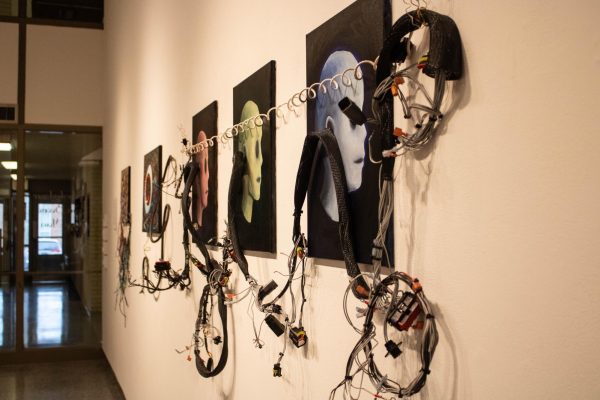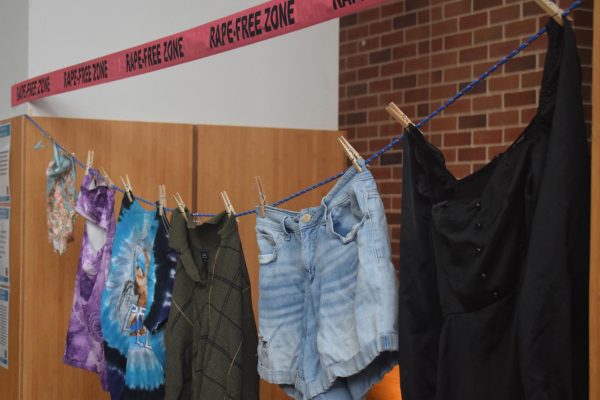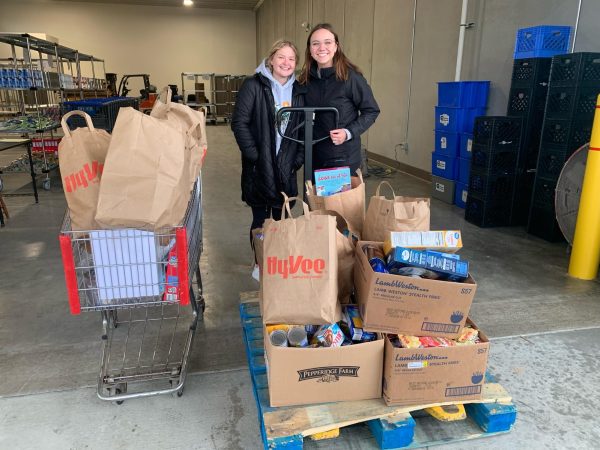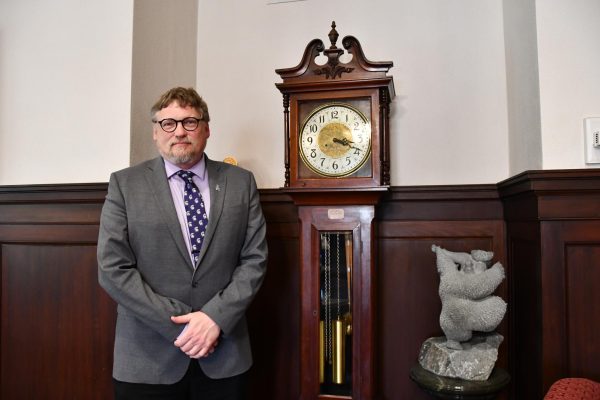Winona State University begins spring semester cautious of COVID-19 variant
Winona State University has started off the spring semester with COVID-19 mind. If a student living on campus tests positive or has been exposed to someone with the virus, they are obligated to quarantine. They can choose to either do the quarantine at home or they can be moved to the Tau building on Winona State’s former West Campus for the duration of their isolation.
January 26, 2022
The COVID-19 virus has made yet another mutation, this time in the form of the Omicron strain. While this new strain likely spreads even easier than prior variants of COVID, according to the CDC, Winona State University has started off the spring semester with this in mind.
When the first wave of COVID hit the United States two years ago, Winona State, like so many other college campuses and schools, had to make some major, abrupt changes. Students were sent home for the remainder of the 2020 spring semester and classes had to be taught completely via remote options. Even after that, classes remained online for nearly another full year with few exceptions.
Although the university instilled a “laying low” period for the first two weeks of the semester beginning Jan. 10, moving all student club activities online, there seems to be little chance Winona State will have to resort to measures similar to the 2020 spring semester.
When asked if the Omicron surge might force the school to shut down in similar fashion to the beginning of the pandemic, President of Winona State, Scott Olson, stated that his cabinet so far has had “zero discussions about the need to pivot to online only.” He also said the university “would like to avoid 100% online if we can,” stating his understanding of how hard it was for some students to stay caught up with online classes.
However, that does not mean the university will not take similar course of action if necessary. President Olson also said if the spread of Omicron does assert the need for a move back to online classes and extracurricular student activities, “we can do that if circumstances suggest that we have to.”
Olson went on to say he cannot guarantee Winona State will not switch back to full online learning if the situation becomes too severe. However, the university is willing to take steps to avoid that if possible.
Connie Kamara, the director of Health Services at Winona State, had something similar to say. While she cannot predict the exact effects the Omicron surge will have on the learning experience of the students, she did state she knows it is “not the intention of the university to go fully online again and that that would be avoided at all costs if possible.”
Megan Chaffee, a fourth-year student at Winona State, said she believes “the university has been doing better as a whole” at handling COVID and guidelines on campus this school year.
Chaffee also expressed she feels the school should consider offering more online options for the convenience of some students.
In light of COVID and its unpredictable variants, Winona State has taken many steps to try and prevent the lockdown situation that happened at the start of the pandemic. These steps have been taken not only to protect student health, but to help prevent the spread of COVID in the community as well.
One very significant step that has been taken by the school is the incentivization of vaccination; Winona State has implemented a policy for students living on campus regarding their vaccination status: if a student living on campus cannot provide proof of their vaccination, they must submit to weekly COVID testing to make sure they have not contracted the virus. If they refuse to do either–get the vaccine or submit to weekly testing–then that student will not be allowed to live on campus.
President Olson mentioned another campaign the school plans on implementing soon called the “Worth a Shot” campaign. The aim of this campaign will be to provide incentives for students to get their COVID vaccines and booster shots. If the campaign is successful, it could possibly decrease the spread of COVID on campus.
Olson also said these programs are more reward oriented rather than being focused on punishment. When asked if the university would make vaccinations mandatory for all students, Olson stated that even if they wished to do that, it would be prohibited for them to do so.
The university is also prepared to handle students and campus community members who have contracted the virus.
If a student living on campus tests positive or has been exposed to someone with the virus, they are obligated to quarantine. They can choose to either do the quarantine at home or they can be moved to the Tau building on Winona State’s former West Campus. The university provides the Tau residents with daily meals and snacks until their isolation period is over. Rides to the building are also offered for students with no means of transportation.
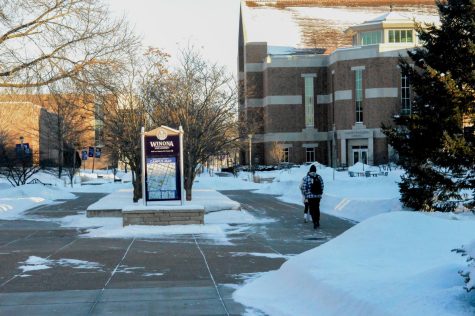
Chaffee was one of these students. After being exposed to COVID, Chaffee had to spend the second week of the semester in isolation to prevent spread. She had few negative things to say about her stay in isolation at Tau and stated the staff who worked with her on getting things situated in Tau were “helpful and non-judgmental.”
With all the preventative measures in place and being planned, the university seems prepared to deal with the new variant.
There remains the question of what makes the Omicron strain different from the previous form(s) of COVID. According to Kamara, the Omicron variant is “more transmissible, yet with potentially less severe symptoms.”
However, this variant is seemingly more contagious. Because of this, steps must be taken to prevent it from spreading among the student body as a place of significant numbers of people gathering in one place.
The main answer of how to limit its spread on campus, according to Kamara, is to get vaccinated.
“Recent studies have shown that one of the best things a person can do to protect themselves is to get vaccinated and boosted,” Kamara said.
Kamara also suggested that getting the booster shot would be particularly helpful, going on to say, “the booster is proving to be very effective at curtailing severe illness with the Omicron variant.”
Winona State offers on-campus vaccinations and boosters for students and staff/faculty. The school carries all brands of the vaccine as well as the boosters and offers COVID tests.
As reiterated by Olson in an all-campus email on Jan. 4, mask wearing will continue to be required inside of university facilities and self-reporting of COVID exposures, quarantining and vaccination statuses is encouraged.






























































